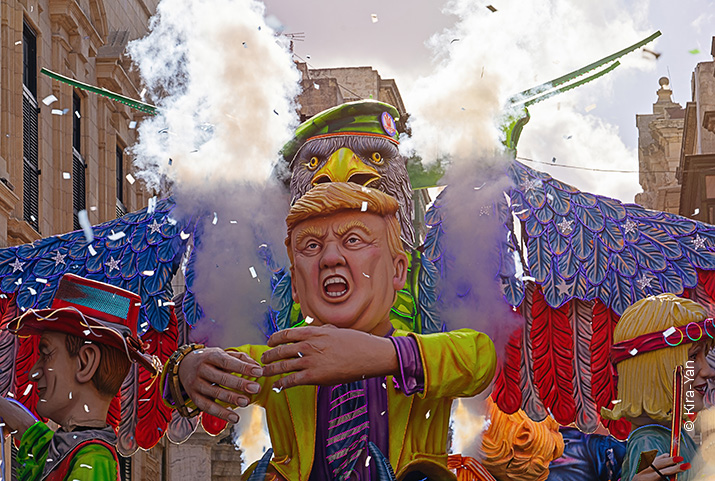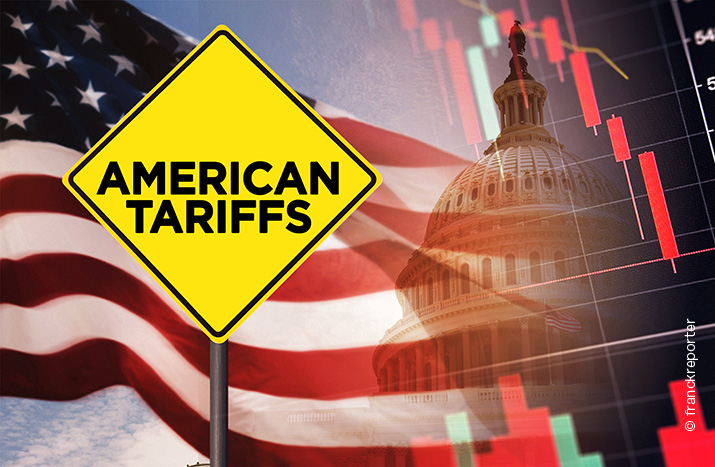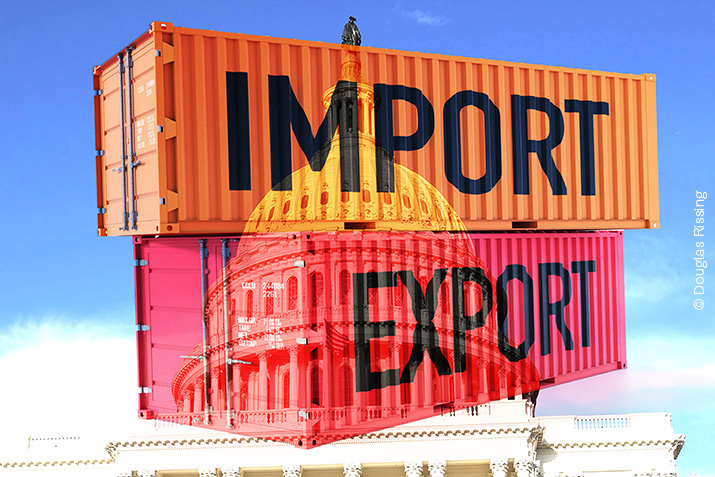The sudden change of course by U.S. President Donald Trump on the issue of broad-based tariff imposition—a topic that is highly sensitive, both economically and politically—invites some reflections that go beyond the strictly technical context, on which, moreover, the author does not claim to have sufficient expertise to elaborate.
In such an analysis, it is first appropriate to dismiss the temptation—embraced by some—to interpret the U.S. President’s abrupt reversal as a 'commendable willingness' to acknowledge and swiftly correct his own mistakes when necessary.
On the contrary, the prevailing view (which we share), by contrast, is one of strong criticism toward a leader who appears to regard his position in the 'elite of the powerful' as so unassailable that he feels exempt, in his public statements, from any clear duty of consistency—and thus entitled to advocate, with equal conviction, both a given position and, shortly thereafter and without any convincingly different rationale, its exact opposite.
After all, the signs of Trump's accentuated distancing from what in any profession is called 'ethical correctness' had already become clear during the recent election campaign, from which, in fact, he emerged victorious, confirming his above-average communication skills (and resources).
Focusing solely on the international sphere, the then-candidate for the highest institutional office on the planet stood out for his bombastic claims about his alleged ability to bring a swift resolution—'within 24 hours'—to both the Russia-Ukraine war and the Israeli-Palestinian conflict. More than three months after he took office, it is clear that both crises remain far from any form of resolution and, in some respects—such as the humanitarian situation in Gaza, where the Palestinian population has been pushed to the brink—they exhibit even more alarming features than those seen during the much-maligned Democratic administration of Joe Biden.
Indeed, there is little doubt that, when it comes to a head of government, credibility is one of the most important qualities and it is valued highly, both by foreign counterparts and by the diverse array of domestic stakeholders. And in fact, when the fates of businesses, trades, and private individuals rest mainly on the actions of a high-ranking leader, erratic behaviours and contradictory decisions are exactly the elements that pose the greatest risk—one that must be avoided at all costs.
Here, the 'strong powers' within the United States, i.e. the very strong constituencies of finance and industry, were the elements that made Donald Trump desist from applying erga omnes tariffs of an unprecedented magnitude, a measure that would have ended up significantly damaging, with a few and probably not coincidental exceptions, precisely many well-established 'star and stripes' interests. As is known, these duties were not revoked tout court but were instead subject to a 3-month suspensive measure, subject to the immediate application of a 10% rate. All of this hinging, of course, on the hope—though this has become the rule rather than the exception—that the President would not change his mind again.
If the reaction of Europe - notwithstanding the widely shared need for the 27 Member States to maintain their unity, speaking with one voice with their interlocutors across the Atlantic - seems to oscillate between the adoption of retaliatory measures and the readiness to negotiate with Washington, while the case is different for the People's Republic of China (PRC) for which the tariff measures remain fully in force, with limited exceptions (primarily smartphones and PCs).
We will consequently hear a lot about guānshuì (Mandarin translation of 'duty') in the coming weeks and, probably, months, not least because of the inflexible attitude that Beijing seems inclined to adopt towards American constraints. A 'wall-to-wall' situation, in short, exemplified by very high tariffs (+ 145% in the case of Washington, + 84% in the opposite direction, according to surveys that are certainly not definitive), potentially fuelling a real 'trade war'.
It is not difficult to predict the outcome of the latter: there will no real winner and, the 'losers' will be a substantial number of countries, spread across the five continents, completely uninvolved in the feud between the two superpowers.
In conclusion, irrespective of their Democratic or Republican loyalties, all the American presidents, from the 1980s until 'The Donald' entered the White House, have been engaged in a sort of 'bet' on China, with a view to integrating it into the ever-increasing process of globalisation as well as, albeit from a perspective that is by no means close, the progressive opening up to the outside world of a regime that was so autocratic at the time as to be almost impenetrable.
Against this backdrop, while it may be acceptable that the United States and China experience periods of distancing and tension in their relations, it would be far less justifiable to ignore the indicators of long-term open conflict—albeit, for the time being, confined to the commercial sphere.
Reggente Marco Marsilli, Foundation President










